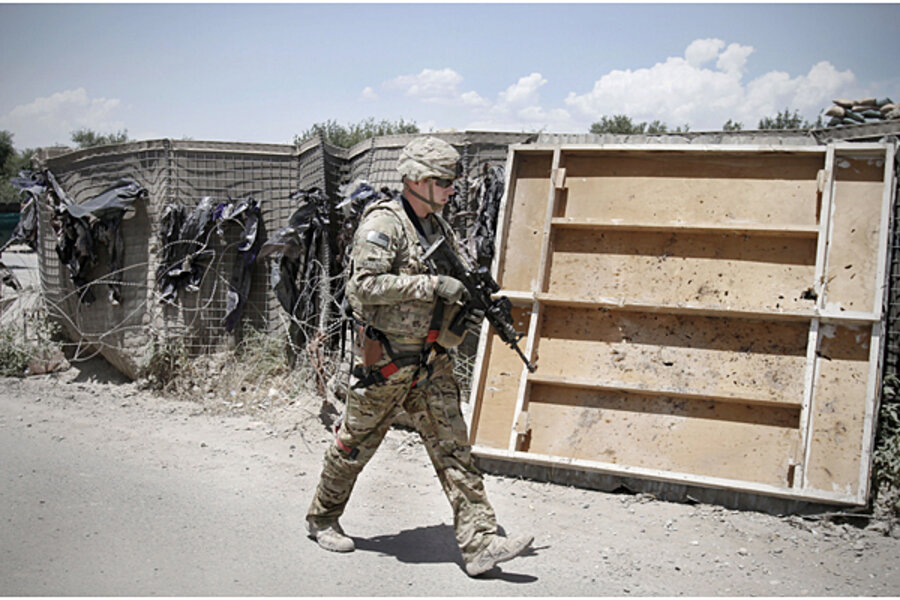NATO will exit Afghanistan as Soviets did, through Central Asia
NATO may not know the final result of its intervention in Afghanistan, but it now has an exit plan. And the exit will take place through Central Asia, the same route the Soviet troops took after their withdrawal in 1988 and 1989.
As relations worsen between the United States and Pakistan, NATO has signed deals with Uzbekistan, Kyrgyzstan, and Kazakhstan (see map here) to move out the tons of equipment that must be withdrawn by 2014, when NATO makes its final exit from Afghanistan.
Speaking with Agence France-Presse news agency, NATO Secretary-General Anders Fogh Rasmussen said that NATO now considers Central Asia and its Russian-built roads to be the most expedient route out of Afghanistan.
"These agreements will give us a range of new options and the robust and flexible transport network we need," Mr. Rasmussen said.
Tarnished by more than a decade of war, mutual recriminations, and foreign policy goals that are increasingly at odds, the US-Pakistani relationship now has reached a nadir. From the early post 9/11 days, when NATO received 90 percent of its supplies for the Afghan war through the Pakistani port of Karachi, now Pakistan has cut off NATO’s old supply routes. Last November, Pakistan banned NATO’s use of Pakistani territory after NATO planes mistakenly bombed a Pakistani post, killing 24 Pakistani soldiers.
For Pakistan, the NATO bombing was the last straw, following the violation of its territorial sovereignty last year when US Navy SEALs captured and killed Osama bin Laden in the Pakistani city of Abbottabad.
Pakistani officials complain that Washington simply cannot grasp the difficulty of reining in popular Islamist militant groups in a country that sees itself constantly under threat from outside. Washington fails to see the threat that Pakistan’s larger rival, India, poses to Pakistan's very existence, and fails to understand how angry Pakistani citizens become after each successive aerial attack over their territory. For its part, Washington has come to see Pakistan as an unreliable ally, a country where the Pakistani military maintains ties with the very groups that attack US troops on Afghan soil, where America’s biggest enemy, Mr. bin Laden, was taking up residence in a military garrison town.
NATO and Pakistan could still patch things up. Pakistan has been hinting lately that there is still room for dialogue, with Pakistan’s Foreign Minister Hina Rabbani Khar suggesting that the US simply needed to apologize for the November bombing of its troops.
"For us in Pakistan ... the most popular thing to do right now is to not move on NATO supply routes at all. It is to close them forever," Ms. Khar told AFP in an interview. "If I were a political adviser to the prime minister, this is what I would advise him to do. But I'm not advising him to do that ... because what is at stake is much more important for Pakistan than just winning an election."
Khar may not want to wait for an apology, given America’s current election season. President Obama seems disinclined, to say the least, and his Republican rival, former Massachusetts Gov. Mitt Romney – whose campaign strategy is to attack Mr. Obama as weak on national defense – is about as likely to push for a NATO apology as he is to push for gun control.
So in the meantime, NATO is looking north, and expanding its options.
Trucking out tanks, artillery pieces, and other military devices that were designed specifically to destroy the Soviet Union, on a route through the former Soviet states themselves, is not only rich with irony, it is also quite expensive. The cost of the northern supply route is nearly double that of the Pakistani route, but at least it’s cheaper than flying all that equipment out by air, which costs the US military $14,000 per ton.







